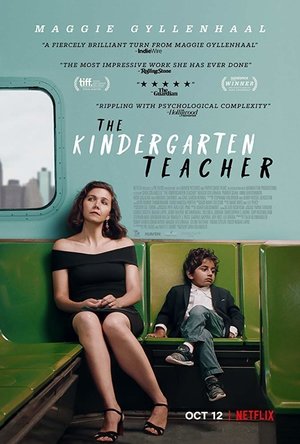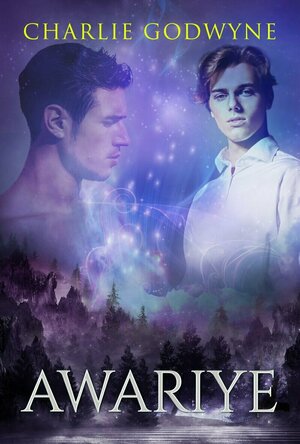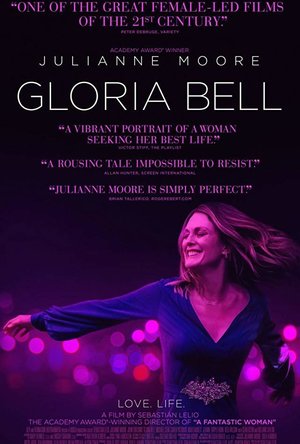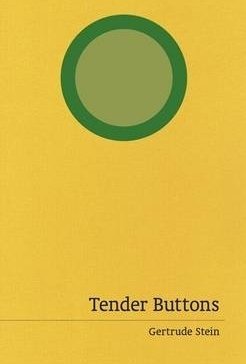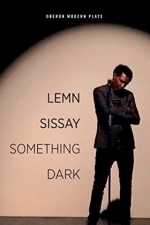Search
Search results
As with most comics/graphic novels-into-movies I've read, I'll admit that I saw the movie (quite a few years back) before reading this.
Essentially a comic-book-brought-to-screen, the movie iteself was incredibly violent (but enjoyable), with ridiculous amoutns of blood and body parts splattered across the screen, and with more nudity than I was expecting alongside the whole sub-plot of King Leonidas wife getting the Spartans to march.
An entire sub-plot that is not in the source material at all.
I also have to say that the violence in this - while still there - is actually toned down quite a bit from what I was expecting, with several of the panels virtually lifted from the pages and put on to the screen.
The story, for anyone who doesn't already know, is centred around King Leonidas' view of Thermopylae - or 'The Hot Gates' - , a narrow pass defended by the 300 Spartans of the title (plus miscellaneous other Greeks, although you'd be forgive for thinking they weren't there the way this, and the legend, is told!) to the death, and which was immortalised by the poet Simodides as follows on an epigram placed on theri burial mound:
"Go tell the Spartans, you who passeth by,
That here, obedient to their laws, we lie."
(see: http://www.poetryatlas.com/poetry/poem/1458/go-tell-the-spartans.html)
Essentially a comic-book-brought-to-screen, the movie iteself was incredibly violent (but enjoyable), with ridiculous amoutns of blood and body parts splattered across the screen, and with more nudity than I was expecting alongside the whole sub-plot of King Leonidas wife getting the Spartans to march.
An entire sub-plot that is not in the source material at all.
I also have to say that the violence in this - while still there - is actually toned down quite a bit from what I was expecting, with several of the panels virtually lifted from the pages and put on to the screen.
The story, for anyone who doesn't already know, is centred around King Leonidas' view of Thermopylae - or 'The Hot Gates' - , a narrow pass defended by the 300 Spartans of the title (plus miscellaneous other Greeks, although you'd be forgive for thinking they weren't there the way this, and the legend, is told!) to the death, and which was immortalised by the poet Simodides as follows on an epigram placed on theri burial mound:
"Go tell the Spartans, you who passeth by,
That here, obedient to their laws, we lie."
(see: http://www.poetryatlas.com/poetry/poem/1458/go-tell-the-spartans.html)
Jeremy Workman recommended Koyaanisqatsi (1982) in Movies (curated)
A.O. Scott recommended The Kindergarten Teacher (2018) in Movies (curated)
Frank Black recommended New Values by Iggy Pop in Music (curated)
Merissa (12934 KP) rated Awariye (Danubian #2) in Books
Oct 22, 2023
AWARIYE is the second book in the Danubian series, and I highly recommend you read Lantern first.
Awariye was mentioned in Wren's book. He was the bard that stayed with Wren all night, singing and reciting poetry, until Wren came back. Now we catch up with him when he is not doing too well. In fact, he becomes deathly ill. Igor is one of Uli's top soldiers and is happy to share his bed with the unwell bard if it will make him well again. The relationship between these two is soft and sweet, in keeping with Awariye's recovery.
The last part of the book deals more with the Lantern Gods than with Igor and Awariye, leading on to comments made by Uli about Wren changing and having to leave the castle. I would liked to have seen these changes, rather than just know about them through comments.
This was a great addition to the series that has left me wanting more. I'm really hoping the next story will help tie everything together and answer some of the questions I have.
A wonderful story and definitely recommended by me.
** same worded review will appear elsewhere **
* A copy of this book was provided to me with no requirements for a review. I voluntarily read this book; the comments here are my honest opinion. *
Merissa
Archaeolibrarian - I Dig Good Books!
Oct 21, 2023
Awariye was mentioned in Wren's book. He was the bard that stayed with Wren all night, singing and reciting poetry, until Wren came back. Now we catch up with him when he is not doing too well. In fact, he becomes deathly ill. Igor is one of Uli's top soldiers and is happy to share his bed with the unwell bard if it will make him well again. The relationship between these two is soft and sweet, in keeping with Awariye's recovery.
The last part of the book deals more with the Lantern Gods than with Igor and Awariye, leading on to comments made by Uli about Wren changing and having to leave the castle. I would liked to have seen these changes, rather than just know about them through comments.
This was a great addition to the series that has left me wanting more. I'm really hoping the next story will help tie everything together and answer some of the questions I have.
A wonderful story and definitely recommended by me.
** same worded review will appear elsewhere **
* A copy of this book was provided to me with no requirements for a review. I voluntarily read this book; the comments here are my honest opinion. *
Merissa
Archaeolibrarian - I Dig Good Books!
Oct 21, 2023
Lenard (726 KP) rated Gloria Bell (2019) in Movies
Mar 27, 2019
Julianne Moore (1 more)
Supporting cast
Dance Your Cares Away
Contains spoilers, click to show
Dancing is an art form. It is freedom. It can be both joyful or sadness. Dance is a metaphor for the ups and downs, ins and outs of life. Gloria loves to dance and goes out dancing whenever she gets the chance. Her job in insurance is mundane and joyless. Her children are both grown. Her daughter is a yoga instructor in a relationship with a Swedish big wave surfer, the symbol of YOLOism. Her son is raising a son alone while his millenial wife discovers herself or finds inner peace or some granola truism. Her ex-husband is out of her life amd played by hangdog Brad Garrett. The nights out dancing are a way to live for her. One night she meets a hot-blooded recent divorcee who ignites a untapped passion in her. He reads Latin American poetry and owns an amusement park with automatic paintball guns. Something doesn't feel completely right with this man though. His thirtyish daughters constantly call him, abandoning her in key spots. The relationship drains her and she refuses to dance. Until she realizes the truth and then avenges herself with his gifted gun. Kind of ironic that he is cheating with her and he gets angry when she ignores him while with her immediate family. In the end, she dances at her friend's daughter's wedding and finds her own inner joy.
Alex Kapranos recommended Dandruff by Ivor Cutler in Music (curated)
Dana (24 KP) rated Tender Buttons in Books
Mar 23, 2018
This book of poetry is chaotic, at best. But that does not mean it is without meaning or cohesion. Through its chaos, the story emerges in little hints and connections that track and follow the speaker through their thought processes in each of the sections of the book: Objects, Food, and Rooms.
I don't normally enjoy modernist poetry much because I feel it tries too hard to be something it is not. It tries to solve problems it cannot, but I have enjoyed this book a lot. Instead of always trying to solve problems, it states how it is. The problems are still there, the chaos is still there, but there is still a sense of peace at what the world is. The speaker is an ordinary person doing ordinary things, thinking about a world that has gone to shit, and that is really relatable.
There is a lot of attention to color in this collection. In the first section, there was a focus on Red and Yellow. In the second, coal is a constant. The colors represent the changing times, the coal especially. Red, the color of blood and war. Yellow, the color of change, and illness. The war had become an illness that had spread across Europe and eventually, the world.
I love how the style is not really a poetic style. Instead it is written in a prose form, but not as a coherent story with a plot line. I appreciate how Stein is creating and experimenting with different styles of writing to try to convey what she wants to.
In the section Objects, there was a quote that I very much liked because I felt like it summed up how that section had been flowing, for me at least. "Book was there, it was there. Book was there. Stop it, stop it, it was a cleaner, a wet cleaner and it was not where it was wet, it was not high, it was directly placed back, not back again, back, it was returned, it was needless, it put a bank, a bank when, a bank care." (30) This quote is showing the chaos of the mind, the disruptions of how it thinks when trying to focus or process what is happening to it. This is how many people's thoughts may have seemed during and after the two World Wars, something Modernist literature and poetry often brings up.
"There is coagulation in cold and there is none in prudence. Something is preserved and the evening is long and the colder spring has sudden shadows in a sun." (40) I like this quotation from the second section, Food, because it acknowledges that even in a time of rebirth, there is still coldness and death. There are shadows in Spring because it is acknowledging the death that had to happen for the rebirth to occur. The "coagulation" can be a congregation of people when the times get tough. When it is "cold" people come together, but in times of prudence, or in times of happiness and peace, people do not feel the need to come together. There is a self-isolation that occurs in the good times.
"A sentence of vagueness that is violence is authority and a mission and stumbling and also certainly also a prison. Calmness, calm beside the plate and in way in. There is no turn in terror. There is no volume in sound." (40) In this section, there it shows that you cannot control the world. There will always be chaos and pain and violence, but you have to learn how to live through it and survive because if you do not, you will be left in your pain with no way out.
"This shows the disorder, it does, it shows more likeness than anything else, it shows the single mind that directs an apple. All the coats have a different shape, that does not mean that they differ in color, it means a union between use and exercise and a horse." (67) This quote shows the reason and necessity of the poem. Like I said before, this book is chaotic to show the connections in chaos. It is a portrayal of the mind in a chaotic state. Everything is able to be connected because it is all from one mind and person.
Overall, I really enjoyed reading this book. I thought it was very relevant to today, even though it was written over one hundred years ago. I recommend that you read this, even if you are not really in to modernist writing because, even though it is confusing at first, once you start thinking about it, it becomes very poignant and interesting.
I don't normally enjoy modernist poetry much because I feel it tries too hard to be something it is not. It tries to solve problems it cannot, but I have enjoyed this book a lot. Instead of always trying to solve problems, it states how it is. The problems are still there, the chaos is still there, but there is still a sense of peace at what the world is. The speaker is an ordinary person doing ordinary things, thinking about a world that has gone to shit, and that is really relatable.
There is a lot of attention to color in this collection. In the first section, there was a focus on Red and Yellow. In the second, coal is a constant. The colors represent the changing times, the coal especially. Red, the color of blood and war. Yellow, the color of change, and illness. The war had become an illness that had spread across Europe and eventually, the world.
I love how the style is not really a poetic style. Instead it is written in a prose form, but not as a coherent story with a plot line. I appreciate how Stein is creating and experimenting with different styles of writing to try to convey what she wants to.
In the section Objects, there was a quote that I very much liked because I felt like it summed up how that section had been flowing, for me at least. "Book was there, it was there. Book was there. Stop it, stop it, it was a cleaner, a wet cleaner and it was not where it was wet, it was not high, it was directly placed back, not back again, back, it was returned, it was needless, it put a bank, a bank when, a bank care." (30) This quote is showing the chaos of the mind, the disruptions of how it thinks when trying to focus or process what is happening to it. This is how many people's thoughts may have seemed during and after the two World Wars, something Modernist literature and poetry often brings up.
"There is coagulation in cold and there is none in prudence. Something is preserved and the evening is long and the colder spring has sudden shadows in a sun." (40) I like this quotation from the second section, Food, because it acknowledges that even in a time of rebirth, there is still coldness and death. There are shadows in Spring because it is acknowledging the death that had to happen for the rebirth to occur. The "coagulation" can be a congregation of people when the times get tough. When it is "cold" people come together, but in times of prudence, or in times of happiness and peace, people do not feel the need to come together. There is a self-isolation that occurs in the good times.
"A sentence of vagueness that is violence is authority and a mission and stumbling and also certainly also a prison. Calmness, calm beside the plate and in way in. There is no turn in terror. There is no volume in sound." (40) In this section, there it shows that you cannot control the world. There will always be chaos and pain and violence, but you have to learn how to live through it and survive because if you do not, you will be left in your pain with no way out.
"This shows the disorder, it does, it shows more likeness than anything else, it shows the single mind that directs an apple. All the coats have a different shape, that does not mean that they differ in color, it means a union between use and exercise and a horse." (67) This quote shows the reason and necessity of the poem. Like I said before, this book is chaotic to show the connections in chaos. It is a portrayal of the mind in a chaotic state. Everything is able to be connected because it is all from one mind and person.
Overall, I really enjoyed reading this book. I thought it was very relevant to today, even though it was written over one hundred years ago. I recommend that you read this, even if you are not really in to modernist writing because, even though it is confusing at first, once you start thinking about it, it becomes very poignant and interesting.
Hazel (1853 KP) rated Dreaming of Antigone in Books
Dec 17, 2018
<i>This ARC was provided by the publisher via NetGalley in exchange for an honest review
Dreaming of Antigone</i> is a contemporary tragedy about sixteen-year-old Andria in the aftermath of the death of her twin sister Iris. It has been almost six months since Iris overdosed on heroin, and also the same amount of time since Andria last had an epileptic seizure. Feeling overwhelmed by her mother’s overprotectiveness, Andria is counting down the days until she can reapply for her driving license – freedom. Only fourteen days to go; unless she has another seizure…
Although she is not over her sister’s death, Andria is keeping her emotions in check; but then, Iris’ ex-drug addict boyfriend, Alex, comes back to school. Andria feels hatred toward him and angrily blames him for what happened to her sister. She is beyond frustrated to discover that she has to work alongside Alex in the library after school. However their love of poetry begins to bond them together, causing Andria to question how she really feels. When more tragedy strikes in the form of her stepfather, Andria is glad to have Alex by her side.
<i>Dreaming of Antigone</i> is a mix of high culture and pop culture. It is written for the contemporary teenager who enjoys love stories, yet it also contains a few highbrow topics. Firstly, as referenced in the title, is the Greek play <i>Antigone</i>. Andria is studying this tragedy at school and likens herself and Iris to the key characters, Antigone and Ismene. Secondly is astronomy. Andria is passionate about the stars and educates the reader a little about the names of constellations and the position of the stars and planets in the solar system. Thirdly, as already mentioned, there are lots of poetry citations.
I was a little disappointed that there was not more focus on <i>Antigone</i>, as this is what attracted me to the novel in the first place. Robin Bridges gives a brief overview of the play for the benefit of readers who are unfamiliar with it, however for readers, like myself, who have studied Sophocles’ tragedies, there is not much more to gain from this reference.
Bridges tackles quite a number of difficult subjects in <i>Dreaming of Antigone</i>. There is the obvious issue of drug abuse, which killed Iris. In this case, Iris was a victim of the addiction, however Bridges counters this with Alex, the survivor, thus saying that it is possible to recover from such a dangerous habit. Later on in the story other challenging problems crop up, for example suicide and sexual abuse. Thankfully Bridges deals with these in a mature and gentle manner, so as not to distress the reader. Having said this, some readers may struggle with this triggering content.
Overall, whilst this was not a terrible book, it was not exactly what I was expecting, and therefore a bit of a disappointment. It is for this reason that I am not giving <i>Dreaming of Antigone</i> more than three stars. Other readers with fewer expectations may enjoy this novel a lot more.
Dreaming of Antigone</i> is a contemporary tragedy about sixteen-year-old Andria in the aftermath of the death of her twin sister Iris. It has been almost six months since Iris overdosed on heroin, and also the same amount of time since Andria last had an epileptic seizure. Feeling overwhelmed by her mother’s overprotectiveness, Andria is counting down the days until she can reapply for her driving license – freedom. Only fourteen days to go; unless she has another seizure…
Although she is not over her sister’s death, Andria is keeping her emotions in check; but then, Iris’ ex-drug addict boyfriend, Alex, comes back to school. Andria feels hatred toward him and angrily blames him for what happened to her sister. She is beyond frustrated to discover that she has to work alongside Alex in the library after school. However their love of poetry begins to bond them together, causing Andria to question how she really feels. When more tragedy strikes in the form of her stepfather, Andria is glad to have Alex by her side.
<i>Dreaming of Antigone</i> is a mix of high culture and pop culture. It is written for the contemporary teenager who enjoys love stories, yet it also contains a few highbrow topics. Firstly, as referenced in the title, is the Greek play <i>Antigone</i>. Andria is studying this tragedy at school and likens herself and Iris to the key characters, Antigone and Ismene. Secondly is astronomy. Andria is passionate about the stars and educates the reader a little about the names of constellations and the position of the stars and planets in the solar system. Thirdly, as already mentioned, there are lots of poetry citations.
I was a little disappointed that there was not more focus on <i>Antigone</i>, as this is what attracted me to the novel in the first place. Robin Bridges gives a brief overview of the play for the benefit of readers who are unfamiliar with it, however for readers, like myself, who have studied Sophocles’ tragedies, there is not much more to gain from this reference.
Bridges tackles quite a number of difficult subjects in <i>Dreaming of Antigone</i>. There is the obvious issue of drug abuse, which killed Iris. In this case, Iris was a victim of the addiction, however Bridges counters this with Alex, the survivor, thus saying that it is possible to recover from such a dangerous habit. Later on in the story other challenging problems crop up, for example suicide and sexual abuse. Thankfully Bridges deals with these in a mature and gentle manner, so as not to distress the reader. Having said this, some readers may struggle with this triggering content.
Overall, whilst this was not a terrible book, it was not exactly what I was expecting, and therefore a bit of a disappointment. It is for this reason that I am not giving <i>Dreaming of Antigone</i> more than three stars. Other readers with fewer expectations may enjoy this novel a lot more.
ClareR (5885 KP) rated Something Dark in Books
Nov 12, 2017
An unflinching look at the Social Care system in the UK
I went to see Lemn Sissay read poems from his last book 'Gold From The Stone' last year at the Chester Literature Festival, and I've been hooked ever since. His poetry is very personal, and so I was interested to see what this would be like.
This is his story of being taken in to care and the resultant damage. It's a one man show, there's no one else on stage with him, and I think this is indicative of how his life has been lived. He has always had to be self sufficient, from the day that his Foster parents (who had parented him from birth) told him at the age of 11 that 'he' didn't love them anymore (it would be more accurate to say that they didn't love him). They didn't even say goodbye to him: his brothers and sisters didn't get to say goodbye, and he was ushered into a car with his social worker and taken to a children's home.
This illustrates how children in care are 'emancipated' at 18 and expected to cope on their own. Most of them have no family or many friends, and are left to fend for themselves. Lemn was given the information to start the search for his birth mother, which is a very interesting part of the story (which I won't divulge!)
I'm actually going to see this performed by Lemn next week (14/11/17), and I'm very much looking forward to it.
This is his story of being taken in to care and the resultant damage. It's a one man show, there's no one else on stage with him, and I think this is indicative of how his life has been lived. He has always had to be self sufficient, from the day that his Foster parents (who had parented him from birth) told him at the age of 11 that 'he' didn't love them anymore (it would be more accurate to say that they didn't love him). They didn't even say goodbye to him: his brothers and sisters didn't get to say goodbye, and he was ushered into a car with his social worker and taken to a children's home.
This illustrates how children in care are 'emancipated' at 18 and expected to cope on their own. Most of them have no family or many friends, and are left to fend for themselves. Lemn was given the information to start the search for his birth mother, which is a very interesting part of the story (which I won't divulge!)
I'm actually going to see this performed by Lemn next week (14/11/17), and I'm very much looking forward to it.


